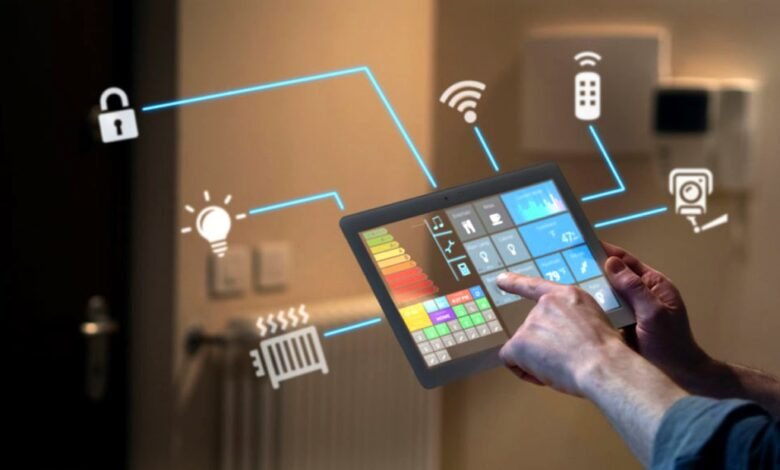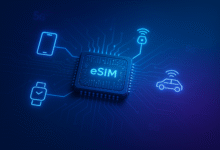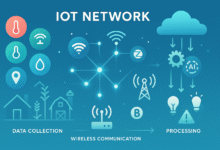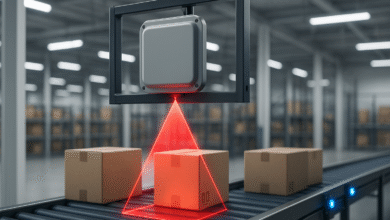Smart Appliances in 2025: Are They Worth the Investment?
The evolution of technology has ushered in an era where smart appliances are no longer a futuristic fantasy but a present-day reality.

The evolution of technology has ushered in an era where smart appliances are no longer a futuristic fantasy but a present-day reality. As we step into 2025, households across the globe are increasingly integrating intelligent devices to make life more convenient, efficient, and interconnected. From refrigerators that suggest recipes based on their contents to washing machines that schedule cycles during off-peak energy hours, smart home technology has drastically evolved. But a crucial question remains: Are smart appliances in 2025 truly worth the investment?
This article delves deep into the benefits, drawbacks, innovations, and overall value of smart appliances, helping you make an informed decision before upgrading your home.
What Are Smart Appliances?
Smart appliances are household devices embedded with internet connectivity, sensors, and sometimes artificial intelligence (AI) to automate tasks and improve efficiency. These appliances can communicate with users and other devices via apps or smart home ecosystems such as Amazon Alexa, Google Assistant, or Apple HomeKit.
Typical examples include smart refrigerators, voice-controlled ovens, robotic vacuum cleaners, and intelligent washing machines. These devices are designed not only to perform traditional tasks but also to offer remote control, usage tracking, maintenance alerts, and even energy-saving features.
Technological Advancements in 2025
The year 2025 has witnessed remarkable progress in the smart appliance industry. Modern devices come with enhanced features such as
-
Machine learning algorithms that adapt to user habits.
-
Energy monitoring systems that reduce utility bills.
-
Integration with renewable energy sources like solar panels.
-
Voice-command improvements that support multi-language functionality.
-
Predictive maintenance alerts homeowners before a component fails.
These upgrades make smart appliances more intelligent and user-friendly than ever before, appealing to both tech-savvy individuals and everyday consumers looking for convenience.
Benefits of Smart Appliances
1. Energy Efficiency
One of the most significant advantages of smart appliances is their ability to save energy. Devices like smart thermostats, dishwashers, and HVAC systems optimize energy consumption based on usage patterns and local utility rates.
For instance, a smart washing machine can detect load size and fabric type, using just the right amount of water and energy. Over time, these small efficiencies add up, leading to substantial savings on electricity and water bills.
2. Convenience and Automation
Smart appliances are designed to reduce manual intervention. Whether it’s a smart coffee maker brewing your morning cup automatically or a robotic vacuum cleaning your floors while you’re at work, these devices streamline everyday chores.
Users can schedule operations, monitor progress remotely, and even receive alerts on their smartphones if something goes wrong. This level of automation enhances user experience and frees up time for more important tasks.
3. Remote Access and Control
In 2025, most smart home appliances are app-controlled, allowing users to operate them from virtually anywhere. Forgot to turn off the oven? Just tap your phone. Want to preheat the air fryer before you get home? Done.
Remote access also means you can check if your smart refrigerator door was left open or receive an alert if your smart security system detects unusual activity. This not only offers peace of mind but also bolsters home security.
4. Interconnected Ecosystems
With IoT (Internet of Things) integration, smart appliances can interact with each other seamlessly. For example, a smart smoke detector can communicate with your HVAC system to shut off airflow in case of fire.
These interconnected systems create a cohesive smart home environment, improving overall functionality and user convenience. In 2025, ecosystem compatibility is at the forefront of product design, making it easier to connect different brands and device types.
Drawbacks and Challenges
Despite their many benefits, smart appliances come with a few notable downsides.
1. High Initial Costs
Advanced features come at a price. A smart refrigerator in 2025 can cost two to three times more than a traditional model. Similarly, smart ovens and AI-powered washers carry a premium price tag.
While these costs may be offset over time through energy savings and added convenience, the upfront investment remains a barrier for many households.
2. Privacy and Security Concerns
The increased connectivity of smart devices raises valid concerns about data privacy and cybersecurity. These appliances collect vast amounts of user data—everything from energy usage patterns to personal habits—and transmit it over the internet.
Without proper security protocols, this data can be intercepted or misused. In fact, smart appliances have become a target for hackers looking to exploit vulnerabilities in IoT networks.
3. Complexity and Maintenance
The more advanced the device, the more complex it is to operate and maintain. Some users may find the technology overwhelming, especially older adults who aren’t as comfortable with digital interfaces.
Moreover, software updates, app malfunctions, or cloud service downtimes can disrupt appliance functionality. In some cases, repairing or replacing a smart component is more expensive than fixing a traditional appliance.
Cost vs. Long-Term Value
Determining whether smart appliances are worth the investment depends largely on individual needs and expectations.
Return on Investment (ROI)
If you’re energy-conscious or plan to live in your home long-term, the ROI on smart appliances can be substantial. For instance, Energy Star-rated smart devices can save hundreds of dollars annually on utility bills. Over 5 to 10 years, this can offset the initial costs significantly.
Resale Value
Homes equipped with smart systems have higher market appeal. Real estate agents note that smart appliances and home automation systems often lead to quicker sales and better offers. In this way, investing in smart technology can enhance your property’s resale value.
Lifestyle Fit
Ultimately, the value also depends on lifestyle compatibility. Frequent travelers, remote workers, and busy families benefit more from smart features than those who prefer hands-on control or have simple living needs.
Popular Smart Appliances in 2025
Here’s a list of the most in-demand smart appliances this year:
-
Smart Refrigerators: With internal cameras, touchscreen controls, and inventory tracking.
-
Smart Ovens and Microwaves: Enable remote preheating and voice commands.
-
Smart dishwashers offer energy-efficient cycles and smartphone alerts.
-
AI Washing Machines: Adjust settings based on load weight and fabric type.
-
Robot Vacuums: With advanced mapping and obstacle detection.
-
Smart Thermostats: Learn your habits and adjust temperatures automatically.
-
Connected Air Purifiers: Monitor air quality in real-time.
-
Smart Plugs and Switches: Automate traditional appliances.
Each of these appliances plays a role in enhancing home automation, safety, and energy conservation.
Future Trends and Sustainability
In 2025, manufacturers are prioritizing sustainability alongside technology. Many smart appliances now use recyclable materials, incorporate modular designs for easier repairs, and support green energy compatibility.
Additionally, with the advancement of AI and edge computing, appliances are becoming more independent, reducing reliance on cloud services and improving privacy.
Voice interaction, gesture control, and even augmented reality (AR) integration are expected to dominate the next wave of development. These innovations promise to make smart appliances not just tools but intuitive companions in daily living.
Tips for Buying Smart Appliances in 2025
Before making a purchase, consider the following:
-
Compatibility: Ensure the appliance works with your existing smart home ecosystem.
-
Energy Ratings: Look for Energy Star or equivalent certifications.
-
Security Features: Choose brands that offer regular software updates and data encryption.
-
Warranty and Support: Opt for manufacturers with strong after-sales service.
-
Ease of Use: Check user reviews for interface simplicity and app reliability.
Conclusion: Are Smart Appliances Worth It in 2025?
The answer is a qualified yes. Smart appliances in 2025 offer a blend of innovation, convenience, and efficiency that traditional devices simply can’t match. While the upfront costs and learning curve can be daunting, the long-term benefits in energy savings, automation, and property value make them a wise investment for most households.
For tech enthusiasts and sustainability advocates, smart appliances are more than a luxury—they’re a necessity in the modern home. For others, the decision should be based on careful cost-benefit analysis and lifestyle needs.
If you’re planning to upgrade your home in 2025, it’s hard to ignore the rising tide of smart technology. Investing in smart appliances today means embracing the future of home living.











